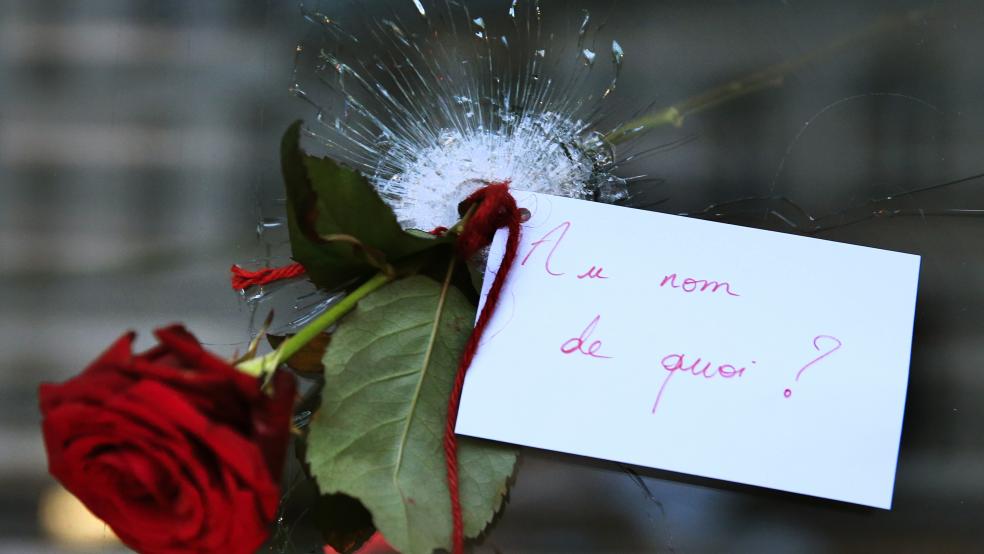Not surprisingly, the horrific terrorist attacks on Paris and mounting concern that the U.S. could become the next target of ISIS have heightened voter concerns about national security as they assess the field of presidential candidates.
In the wake of last Friday’s carnage in France that left 129 people dead and hundreds more injured, 22 percent of voters say security issues are foremost in their minds when they think about the presidential election, according to a new Morning Consult poll.
Related: Rand Paul Proposes Strict New Rule to Exclude Refugees
The survey of 2,001 registered Republican and Democratic voters, conducted between Friday and Monday, found that roughly three in ten Republicans and self-described conservative voters say that national security issues are their top concern. Seventeen percent of Democrats and 20 percent of those who consider themselves independents said national security was their top concern.
Whether the presidential campaign is transformed into a bitter, no-holds barred debate over military strategy for combating ISIS and closing U.S. borders to Syrian refugees still remains to be seen. Much will depend on the extent to which Donald Trump, Ted Cruz and other Republican candidates can latch on to voter fears of ISIS and refugees, and whether President Obama can do better than he did on Monday in trying to reassure the country that his long-term plan for containing and defeating the jihadist terrorists is working.
Yet even with Americans and their political leaders now on high alert to the threat of a repeat of the 9/11 attacks against the U.S., voters’ top concern remains where it has been from the start of the campaign – on the uneven economic recovery and what it means for the average person. Thirty-six percent of those surveyed said the economy remains the most important issue to them when considering which candidates to support – the highest rated issue in the survey.
When asked to name the greatest existential threat to this country, however, 36 percent of the poll’s respondents mentioned either terrorism on the home front or groups like ISIS, while 22 percent said they were most worried about economic collapse.
Related: Hillary Clinton May Be the Biggest Winner from the Blowout Jobs Report
As for which candidates are best suited to lead the country and address these concerns, Republicans continue to favor real estate billionaire Donald Trump over retired neurosurgeon Ben Carson, his nearest rival, 38 percent to 19 percent. And on the Democratic side, former secretary of state Hillary Rodham Clinton holds a solid lead over Vermont Sen. Bernie Sanders, 57 percent to 26 percent, with just two percent for former Maryland governor Martin O’Malley.
The economy has long dominated the presidential campaign, prompting major candidates in both parties to offer a series of tax cuts and spending programs targeted to the middle class, even as concerns about ISIS have risen. A Gallup poll in May found that 86 percent of Americans said the economy will be extremely or very important to their vote next year – a significantly higher percentage than for any other issues. Concerns about terrorism ranked high, however, with 74 percent saying that their concerns about terrorism would greatly influence their choice of a candidate.
A Reuters/Ipsos poll conducted last weekend found that 63 percent of Americans were worried that a Paris-style attack could occur in the U.S., but just 17 percent listed terrorism as their top concern – which matched their concerns about the economy.
After last Saturday night’s Democratic presidential debate, Sanders was criticized by many pundits for too quickly pivoting in his opening remarks from voicing “shock” and “disgust” over the terrorist attacks on Paris to his signature campaign issue of fixing an economy that has been “rigged” by a billionaire class against average middle class Americans.
Related: As Hawks Call for Aggressive Action, Obama Sticks to His Strategy for ISIS
“People are working longer hours for lower wages, and almost all of the new income and wealth goes to the top 1 percent,” Sanders said. “And then on top of that we’ve got a corrupt campaign finance system in which millionaires and billionaires are pouring huge sums of money into super PACs heavily influencing the political process.”
While Sanders’ abrupt switch from the tragedy in France to his standard stump speech was jarring and probably inappropriate, it did encapsulate voters divided concerns over their country’s safety and their economic futures.





